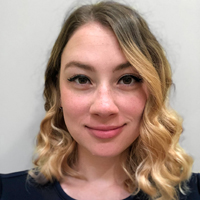Apr 13, 2022 By: yunews
 Daliah Ross
Daliah RossCongratulations on receiving the award. How important is an award like this to your career? I am deeply honored to have been chosen for this award. This recognizes my first first-author publication, which was based on my predoctoral project (masters-en-route thesis). As a trainee working towards a career in research, receiving recognition for my work is meaningful both professionally and personally. Formulating and carrying out research ideas can be challenging during training, and being recognized for my work is gratifying and encouraging. This award comes with the opportunity to present my findings at the APA annual conference and to give an address during the awards ceremony. Networking, including in the context of disseminating research at conferences, is an invaluable experience in career development. This is especially relevant given the past two years of virtual conferences due to the COVID-19 pandemic. I have presented at two conferences in the past year that were switched to virtual which, while important, unfortunately limits the ability to network and discuss science with other researchers in my field. I am very excited to attend my first in-person conference at APA in over two years. APA is one of the largest psychology conferences, and I have not yet had the pleasure of attending. I am looking forward to meeting other trainees and professionals in neuropsychology, sharing research findings and cultivating new ideas, and cultivating relationships with others across the country. How would you explain the core findings of your research to a non-specialist? The short answer is that to “walk and chew gum at the same time” is challenging, and my research suggests that brains of older adults may work harder to multitask while walking in part because of underlying thinner brain cortex. In more detail, my predoctoral project examined the neural inefficiency hypothesis, which suggests that when someone’s brain is activating more than another person’s but they are performing at the same or worse level, their brain is acting inefficiently. In this project we evaluated brain activation in the prefrontal cortex (the front area of the brain behind your forehead) while older adults walked, talked, and did both at the same time. Walking while talking causes your prefrontal cortex to activate more than doing either activity alone, as it is more attention-demanding, but there is variation across people as to how much their prefrontal cortex activity increases. I examined whether this change depends on cortical thickness throughout the brain. Cortical thickness refers to the combined thickness of the layers of brain’s cerebral cortex. We found that, in older adults, less cortical thickness was associated with greater prefrontal cortex activation, suggesting neural inefficiency. Further, as this neural inefficiency during walking has been examined in relation to other brain characteristics (white matter integrity and gray matter volume), my work was able to show that measuring cortical thickness provides additional useful information. Cortical thickness has been found to be more sensitive to age-related changes than gray matter volume, and is distinct in the representation of cellular brain tissue. Interestingly, the regions of the brain where I found significant associations of cortical thickness with changes in prefrontal cortex activation were not exactly the same as the regions that related to increased brain activation when measured as gray matter volume. Finally, while brain activation was only measured in the prefrontal cortex, cortical thickness was measured throughout the brain. My results further add to our understanding that a large portion of the brain is involved in the control of active walking, and it is not an automatic process as was once thought. What are some research ideas you’d like to pursue with the help of this award? I am currently beginning to work on my dissertation project, which is somewhat of a pivot from my previous work. We started a new study in the lab focused on aging with Multiple Sclerosis. I plan to continue to work with neuroimaging tools to understand how the brain ages but will be focused more directly on cognitive changes than mobility. I specifically will be investigating verbal memory in older adults with MS and associations between memory performance and brain (white matter) integrity. After graduate school, I’d like to expand my research on the cognitive and neural underpinnings of aging to other neurological and neurodegenerative disorders. I plan to seek a postdoctoral fellowship that would allow me the research and clinical training opportunities to pursue these endeavors, and eventually apply for grant funding to support my research career development.
